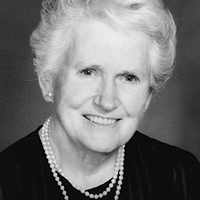OVER IT. OVER IT. OVER IT. OVER IT. OVER IT. OVER IT. OVER IT. OVER IT. OVER IT. OVER IT. OVER IT. OVER IT. OVER IT. OVER IT. OVER IT. OVER IT. OVER IT. OVER IT. OVER IT. OVER IT. OVER IT. OVER IT. OVER IT. OVER IT. OVER IT. OVER IT. OVER IT. OVER IT. OVER IT. OVER IT. OVER IT. OVER IT. OVER IT. OVER IT. OVER IT. OVER IT. OVER IT. OVER IT. OVER IT. OVER IT. OVER IT. OVER IT. OVER IT. OVER IT. OVER IT. OVER IT. OVER IT. OVER IT. OVER IT. OVER IT. OVER IT. OVER IT. OVER IT. OVER IT. OVER IT. OVER IT. OVER IT. OVER IT. OVER IT. OVER IT. OVER IT. OVER IT. OVER IT. OVER IT. OVER IT. OVER IT. OVER IT. OVER IT. OVER IT. OVER IT. OVER IT. OVER IT. OVER IT. OVER IT. OVER IT. OVER IT. OVER IT. OVER IT. OVER IT. OVER IT. OVER IT. OVER IT. OVER IT. OVER IT. OVER IT. OVER IT. OVER IT. OVER IT. OVER IT. OVER IT. OVER IT. OVER IT. OVER IT. OVER IT. OVER IT. OVER IT. OVER IT. OVER IT. OVER IT. OVER IT. OVER IT. OVER IT. OVER IT. OVER IT. OVER IT. OVER IT. OVER IT. OVER IT. OVER IT. OVER IT. OVER IT. OVER IT. OVER IT. OVER IT. OVER IT. OVER IT. OVER IT. OVER IT. OVER IT. OVER IT. OVER IT. OVER IT. OVER IT. OVER IT. OVER IT. OVER
OVER
IT.
UNDERREPRESENTED.
UNDERVALUED.
UNDERMINED.
Welcome to the OverItUSC community! #OverIt was created by students at USC’s Annenberg School for Communication & Journalism - brought together by a course - “Gender in Media Industries & Products” with Professor Alison Trope. Over the semester, in the midst of lessons on prejudices and biases in media and tech industries, our attention shifted beyond the classroom to the national stage. We were inspired by Dr. Christine Blasey Ford’s powerful testimony, and we began to notice direct parallels to our class discussions about the impact of gender norms on institutional structures and cultures, and the value of speaking truth to power (HT Anita Hill).
We grew keenly aware that our class discussions and the recent news swirling around us was not far from our own realities. Even USC, the institution we trusted, has a painful, inexcusable history of sexual assault that was brought to light earlier this year. In the wake of activism in media industries from #MeToo to #TimesUp, we were further inspired to seed change — beginning on our campus and bringing it with us beyond. Looking around the room, we acknowledged that some type of aggression (sexual, micro, racial, etc.) has affected each of us in the workplace and in the world. As classmates and guest speakers shared their stories, we listened, we learned, and we realized we needed to take matters into our own hands. If this could happen in a room of 19 individuals, why couldn’t we replicate this on a larger platform? As we leave this university, what can we learn from our studies, our experiences, and the testimony of others? Thus #OverIt USC took form.
Explore, interact, and engage. We’re here to listen and help. On this digital archive, you can find tips on dealing with an array of prejudices and -isms in the workplace (sexism, racism), hear stories of others, and be heard by the larger community.
We are over being told how to feel or what to say. We are over the passive nods and coy smiles. We are over the “nice try, honey” and “wait your turn.” In fact, it's our turn now. We are #OverIt. Will you join us?
USC MAP REIMAGINED
It made us wonder what it would be like if our campus did the same thing — made visible the important women who have studied here. In doing so, It made us keenly aware of how a handful of spaces and accolades on our campus have honored men in media industries who harassed, disenfranchised, and discriminated against those of lesser power — from Les Moonves’ name plastered on the Annenberg Media Center, to Bryan Singer’s imprinted on the Cinema and Media Studies division of the School of Cinematic Arts, to Harvey Weinstein's pledge to create a USC scholarship for female filmmakers. Since October 2017, USC has reacted to these abuses of power by rejecting and rescinding these men’s contributions after student and faculty backlash. But what if USC officials actively empowered women by lifting them up and celebrating their accomplishments instead of covering for men and their scandals? What if the buildings in which we learn and see each day, the streets we walked down on our way to class, the monuments we honor, were powerful, history-making women? How would this alter our perceptions of ourselves as women, and how would the USC males' perception of women change? What would our attitude towards women be on campus and in the workforce post-graduation? Would our heroes be women? Would we, as female students of USC, constantly strive to fill men’s shoes?
Our inspiration for this project came from an article by Rebecca Solnit in the New Yorker in 2016 called “City of Women.”
Solnit recreates a map of the New York City subway stations honoring monumental New York women. Explaining the impetus behind the map, Solnit claimed, “I can’t imagine how I might have conceived of myself and my possibilities if, in my formative years, I had moved through a city where most things were named after women and many or most of the monuments were of powerful, successful, honored women.”
It’s time that we started looking up to leading women as a University and as a society. It’s time that we started honoring the women that made this school what it is. It’s time that our heroes, our mentors, and our idols are women, because frankly,
we're #OverIt.
Auditorium






















